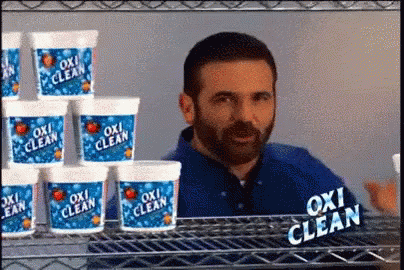Unlock the Power of Your Money: You Could be Earning 20 Times More Interest Right Now!
Want to grow your savings with low risk? CDs offer higher interest rates than savings accounts & are FDIC-insured. Committing your cash for a set period of time is required, but it can be helpful for big goals like a down payment or retirement. Beware of penalty fees for early withdrawal!

If you're looking for a way to earn some serious cash on your savings, it's time to take a page out of Gen Z's fashion book and get hip to CDs (wow… that was corny). With the best-performing CDs hitting 5% interest rates in February for the first time since the mid-2000s (hence the Gen Z reference), there's never been a better time to park your cash and watch it grow.
So, what's the deal with CD rates skyrocketing while traditional savings accounts languish? It all comes down to the Federal Reserve and its recent interest rate hikes. These hikes have made borrowing more expensive but they've also created a golden opportunity for savers who know where to look.
While the average interest rate on savings accounts is a paltry 0.23%, high-yield savings accounts and CDs are delivering their best returns in years, with CD rates more than 2,000% higher than savings account rates. Don't miss out on your chance to earn some serious interest – start shopping around for the best CD rates today!
Unleash Your Savings Potential with CDs!
For you youngin’s out there the only CD you’ve probably ever heard of is a compact disc. You know that ancient form of listening to music? However, what we are referring to here is a certificate of deposit. Equally as ancient as a savings vessel.
Basically, a CD is a type of savings account that lets you earn a higher interest rate in exchange for locking up your cash for a set period of time. CDs come in all different flavors, with terms ranging from a few months to several years, and they're a great way to earn some extra dough if you don't need immediate access to your cash. Just be sure to read the fine print and make sure you're comfortable with the terms before you invest.
How Does a CD Work?
You know those people who can commit to one thing and stick with it for ages, like the ones who only eat avocado toast for breakfast or never miss a yoga class? Well, CDs are kind of like that. When you open a certificate of deposit, you're committing to a specific term length (usually one to five years), and in exchange for leaving your money alone, the bank promises to give you a guaranteed interest rate that won't change throughout the term.
But here's the catch: if you decide you need your money back before the term is up, you'll be charged a fee (and nobody likes fees). And you can't add to your CD once the term starts, either. When your CD reaches the end of its term (aka "matures"), you'll have a few options: renew it, withdraw the money, or move it to another account or CD. And don't worry about the safety of your money – CDs are insured up to $250,000 by the FDIC or National Credit Union Administration.
Current CD Rates (Week of Feb. 22)
CDs vs. High-Yield Savings: Who Wins?
I know you're probably thinking – "wow, this topic sounds about as exciting as watching paint dry" – but trust me, there are some juicy deets you won't want to miss.
First up, let's talk about commitment. With a CD, you're basically signing a contract to leave your money alone for a specific term length (usually one to five years). It's kind of like getting married, except instead of saying "I do," you're saying "I won't touch my money for a while."
High-yield savings accounts, on the other hand, are more like a casual fling – you can withdraw your money whenever you want without penalty. So if you're the commitment-phobe type, a high-yield savings account might be more your speed. But if you're looking for a low-risk way to grow your savings and don't mind locking up your money for a bit, a CD might be worth considering.
Are the Interest Rates Different Too?
We all know that higher interest rates = more money in your pocket, right? Well, when it comes to CDs and high-yield savings accounts, there's a bit of a tradeoff. CDs typically offer higher interest rates (especially for longer terms), but you're locked into that rate for the entire term.
High-yield savings accounts, on the other hand, offer variable interest rates that can change at any time – but you're not locked into anything. It's kind of like choosing between a one-night stand with a hot stranger or a long-term relationship with a reliable partner – there are pros and cons to both, so it's up to you to decide what works best for your financial situation.
The Interest Rates Are Great, but Are They Staying?
It looks like the fight against inflation isn't over yet. Some experts are predicting that the Federal Reserve might need to push the benchmark borrowing rate above 5% before inflation fully eases. And if you thought that was exciting news, just wait – there's more!

Fed Chair Jerome Powell has hinted that more rate increases will likely be necessary.
So what does all this mean for you and your hard-earned cash? Well, if you're looking for a low-risk way to grow your savings, it might be time to start considering CDs and high-yield savings accounts. As the Fed raises rates, interest rates on these types of accounts are likely to go up, too – which means you might be able to squeeze out a few extra pennies of interest.
Of course, you'll want to read the fine print and make sure you're comfortable with any terms and conditions before you commit your cash. Because let's be real – nobody wants to be locked into a long-term commitment that they're not 100% sure about.
Salt’s Takeaways
Now that you’re a regular financial genius and know the ins and outs of CDs and high-yield savings accounts, you shouldn’t be afraid to shop around for the best deals. But before you get too excited about all those sweet, sweet interest rates, remember to read the fine print and make sure you're comfortable with any terms and conditions. Because let's face it – nobody likes surprises when it comes to their money.
And speaking of surprises, keep an eye on the news for updates on interest rates. The Federal Reserve is always up to something, and you never know when they're going to raise rates (or lower them, for that matter). But don't let that scare you – with a little patience and some smart saving strategies, you'll be well on your way to financial success in no time.
FAQs
What is a CD and how does it work?
A certificate of deposit (CD) is a savings tool that typically offers higher interest rates than a regular savings account. It earns interest at a fixed rate over a set period of time known as the term but withdrawing cash before it matures usually results in a penalty fee. So if you're looking to earn some extra cash and don't mind locking up your money for a bit, a CD might be worth considering.
Is it worth putting money in a CD?
One of the biggest perks of a certificate of deposit (CD) is the sweet, sweet interest rate. CDs usually offer higher interest rates than savings accounts, which means you can make more money on your deposit. This can come in handy if you're saving up for a big goal, like a down payment on a house or your dream retirement.
Why would someone get a CD account?
Looking for a low-risk way to grow your savings? Enter the certificate of deposit (CD). It's a savings tool that can help you earn more interest while keeping your money relatively safe. And the best part? Like savings accounts, CDs are FDIC-insured up to $250,000 – which means you can rest easy knowing your hard-earned cash is protected.




Comments ()